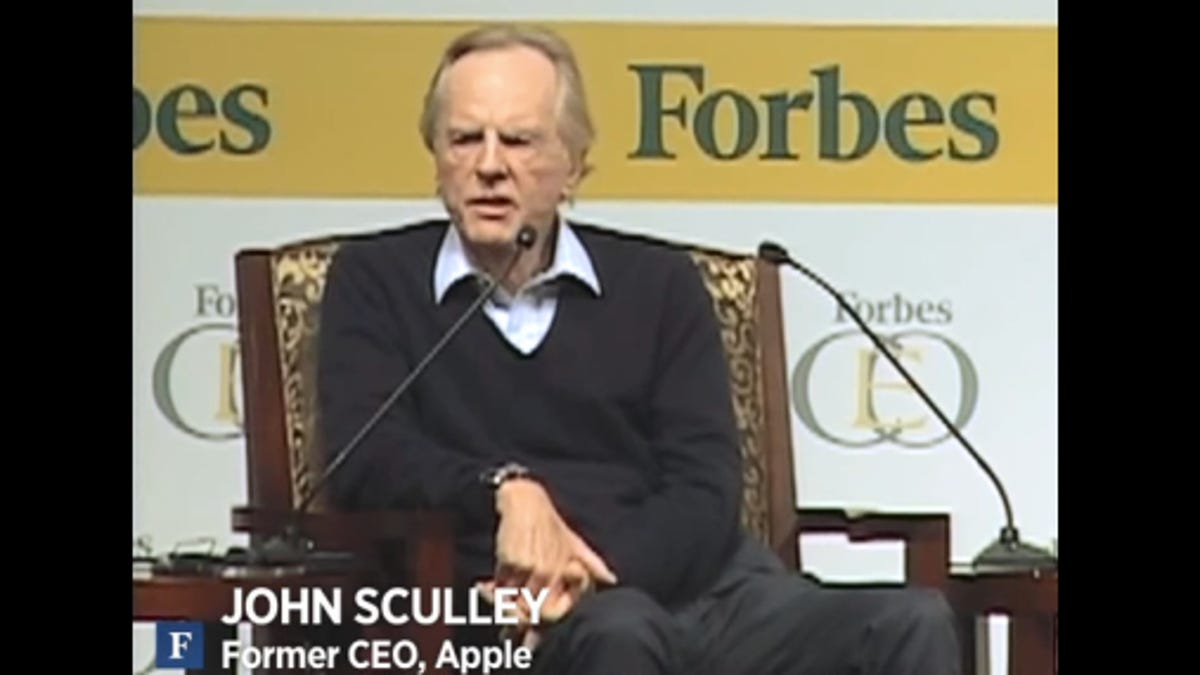John Sculley spills the beans on firing Steve Jobs
The former Apple CEO, who fired Jobs in 1985, gave his most illuminating explanation ever of the move at a Forbes conference in Bali last week.

It's perhaps one of the most famous -- or infamous -- personnel moves in Silicon Valley history: then Apple CEO John Sculley's 1985 firing of Steve Jobs. But until now, we've never known much about how it happened.
At a Forbes conference in Bali last week, however, Sculley opened up about the firing, telling some of the richest and most powerful people on Earth just how he came to deliver Jobs' pink slip.
At the conference, Sculley spent eight minutes rehashing the infamous history after an audience member asked about it. "The ballroom then sat in rapt silence as Sculley delved into details," Forbes reported today, "cast blame, and reflected on lessons learned."
Essentially, Sculley told the crowd, it was the Apple board's fault for creating an environment in which Sculley, the former Pepsi wunderkind, and Jobs, who lured him away with the famous challenge to make a difference instead of spending his career with sugar water, clashed.
The main reason for that clash, Sculley recalled, was the introduction of the Macintosh Office in 1985. The second-gen Mac's launch had been panned, with critics calling the new computer a "toy," and ridiculing its small computing power.
"Steve went into a deep depression," Sculley said. As a result, "Steve came to me and he said, 'I want to drop the price of the Macintosh and I want to move the advertising, shift a large portion of it away from the Apple 2 over to the Mac."
"I said, 'Steve, it's not going to make any difference. The reason the Mac is not selling has nothing to do with the price or with the advertising. If you do that, we risk throwing the company into a loss.' And he just totally disagreed with me."
"And so I said, "Well, I'm gonna go to the board. And he said, 'I don't believe you'll do it. And I said: Watch me."
Jobs' problems with the launch didn't come in a vacuum, Sculley explained. Already, Jobs had overseen a slew of product failures, including the Lisa and the Apple 3, and revenues from the Apple 2 were slowing considerably. The company needed a major new revenue source to get the Macintosh line where it needed to go. Sculley said that the board gave him the power to first ax Jobs as head of the Mac division, and then from the company altogether. And was it the right thing to do?
Sculley said he didn't have the business expertise at the time to fully understand what visionary leadership was. "What would have happened if we hadn't have had that showdown?...I did not have the breadth of experience at that time to really appreciate just how different leadership is when you are shaping an industry," Sculley said, "as Bill Gates did or Steve Jobs did, versus when you're a competitor in an industry, in a public company, where you don't make mistakes because if you lose, you're out."
Added Sculley at the conference in Bali, "My sense is that there could have been a different outcome."
Indeed, over the years, Sculley, like so many others, recognized Jobs' true genius as a leader. In 2011, for example, he called Jobs "the greatest CEO ever."

